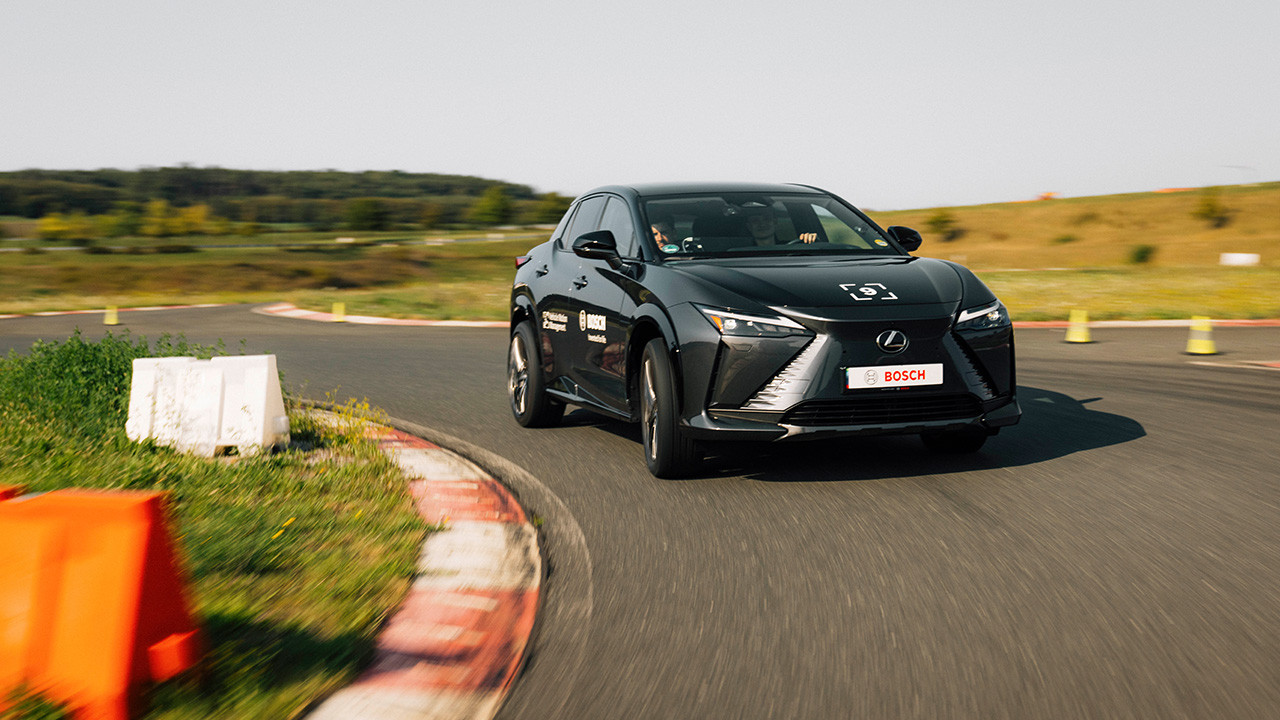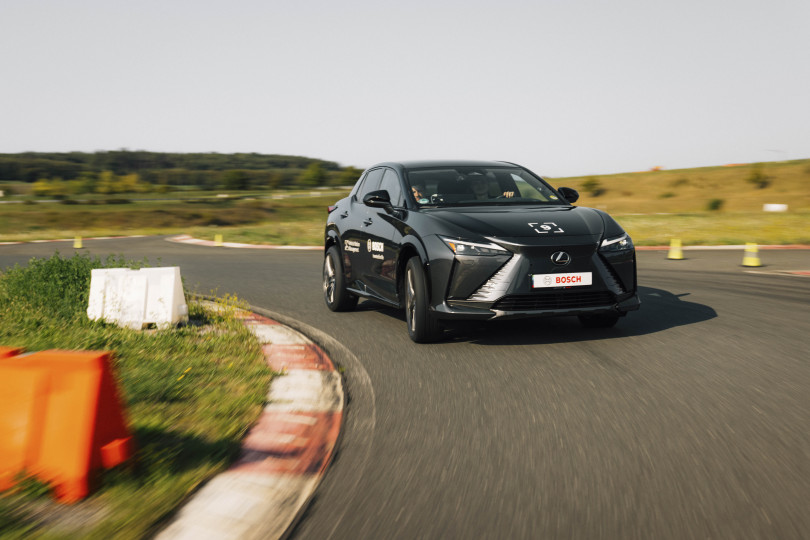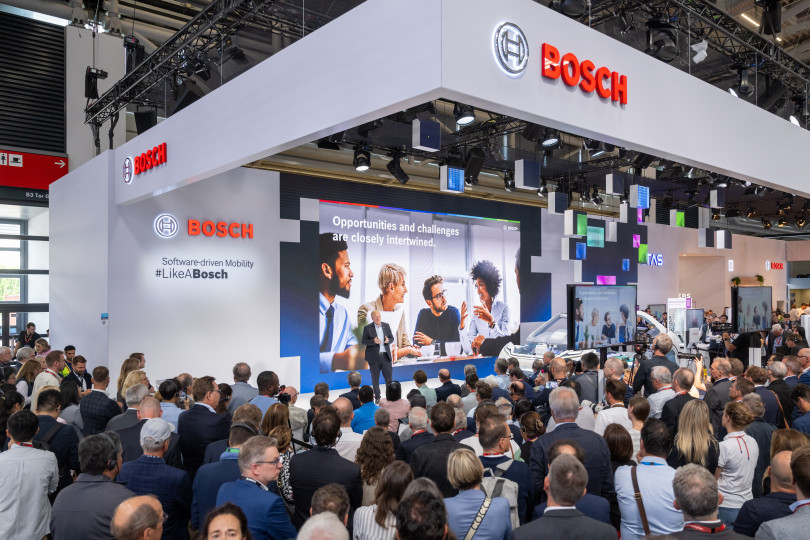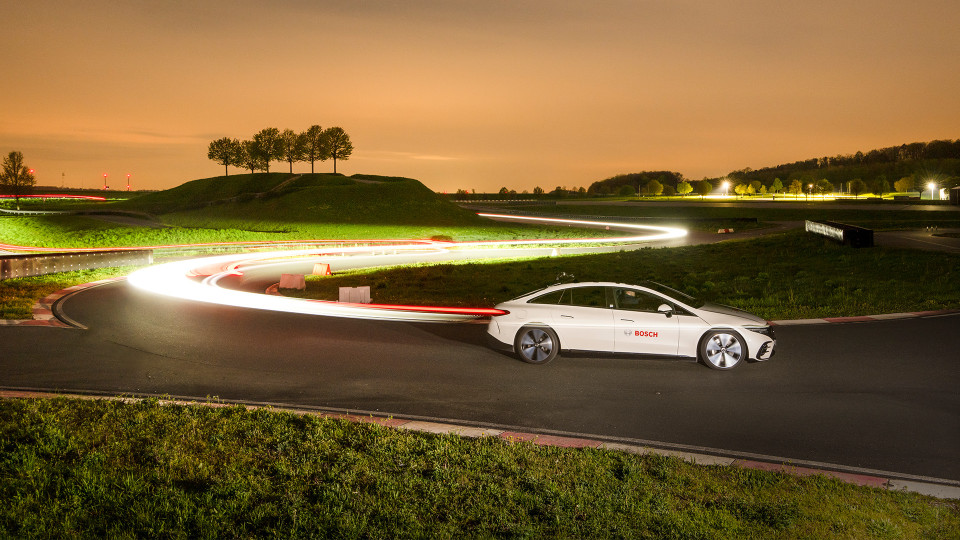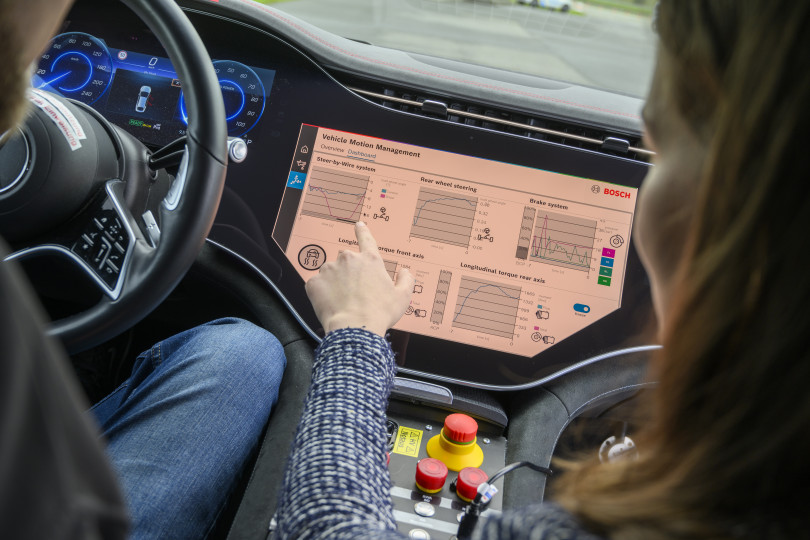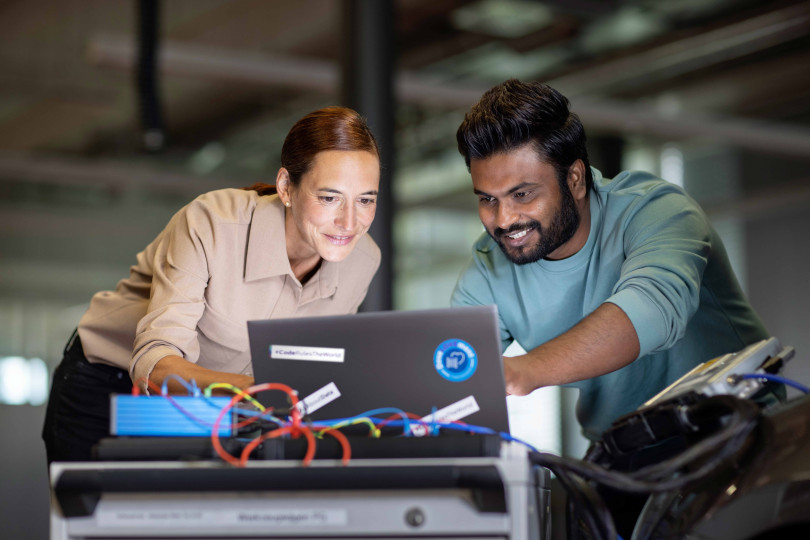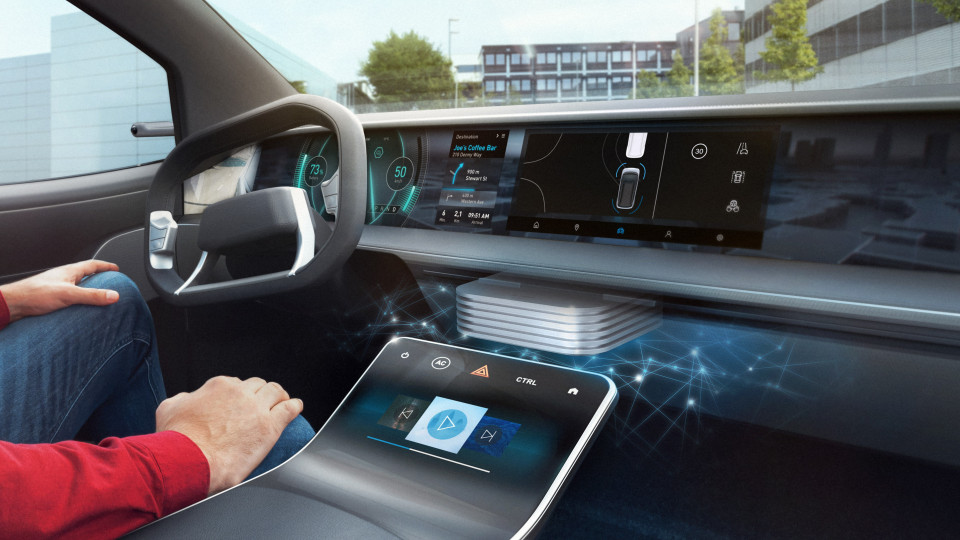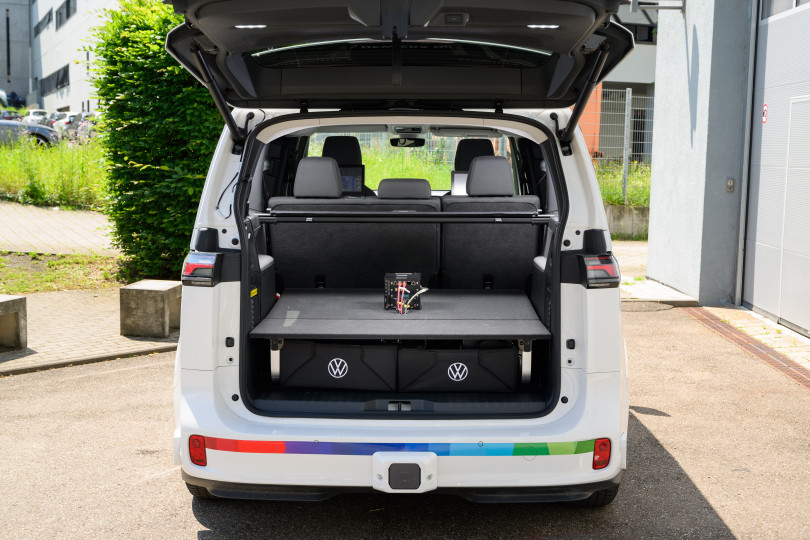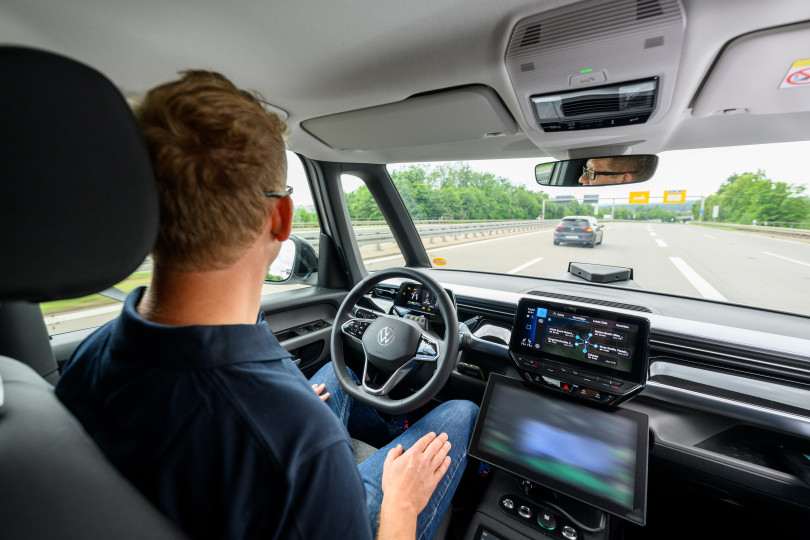Munich, Germany – In the automotive industry, the Bosch name is synonymous with software. The technology company is demonstrating this to impressive effect at this year’s IAA Mobility in Munich. And there’s more: from a single source, Bosch also supplies hardware that’s tailored to the possibilities of the software – a compelling unique selling point for the company worldwide. “Bosch knows its way around software and hardware. Without sophisticated hardware, even the smartest car won’t move a single millimeter,” said Dr. Stefan Hartung, chairman of the Bosch board of management, at the trade fair. “Our aim is to continue playing a key role in shaping the industry in the age of software-driven mobility by offering tailored, intelligent solutions.”
Initial indications point to success: Bosch has established a foothold in the software-driven world. Its high-performance computer business alone is currently growing by more than 5 percent every year, with automakers such as the BMW Group among the customers. These vehicle computers will drive growth for Bosch’s overall mobility business: despite stagnating global vehicle production, weak demand, and delays in electromobility and automated driving, Bosch Mobility will grow slightly in the current year. The increase in sales revenue is expected to amount to a little less than 2 percent.
Bosch wants to turn cars into personal assistants
In software-driven mobility, Bosch Mobility’s business continues to develop – from hardware with embedded software, to services, to completely independent software that manufacturers and partners then integrate into their ecosystems. “Whether stand-alone or interconnected, standardized, integrated, or decoupled – we can offer everything exactly as the customer wants it,” Hartung said.
Up to today, a vehicle was never as new as the moment it was delivered. “In the future, however, its software will be continuously updated and it will be constantly learning by means of artificial intelligence,” said Dr. Markus Heyn, member of the Bosch board of management and chairman of the Mobility business sector, also at IAA Mobility in Munich. “More than anything else, the new mobility is user centered,” Heyn added. This is what that looks like: Bosch’s Vehicle Motion Management software coordinates all vehicle movements by centrally controlling the brakes, steering, powertrain, and chassis. This improves coordination between the individual systems – and also means they can be adjusted to the driver’s preferences. A particularly smooth ride today? A little more agility tomorrow? And jolt-free stopping the day after? No problem – at the touch of a button, the car feels completely different. Incidentally, Bosch’s Vehicle Motion Management is decoupled from the hardware, which makes it easy to use in different vehicle architectures. That’s not just theory, it’s happening: the Bosch software is in widespread use, with more than two dozen manufacturers in Europe, China, and Japan already having adopted it. Over the next three years, Bosch will be investing a nine-figure euro sum in Vehicle Motion Management and expanding its modular software and function portfolio across all domains.
Bosch’s smart software makes the difference
Bosch’s ADAS product family is also software-driven. For intelligent driver assistance systems, vehicle manufacturers can choose from three preconfigured variants that can then be put into production quickly and in a brand-specific way. Here, too, hardware and software can be integrated or purchased separately, depending on customer requirements. Both options benefit from a holistic approach: since Bosch understands the interaction between hardware and software, it can offer individually optimized solutions that can be seamlessly integrated into existing environments. Among these solutions are Bosch’s by-wire systems for braking and steering, which no longer need a mechanical connection. Instead, the software takes control, which means braking and steering behavior can be adjusted and updated at any time. By-wire technology is a taste of what lies ahead for vehicle construction. “In the future, hardware will be designed to fit software requirements,” Heyn said.
Modern vehicles, which are designed and developed from a software standpoint, make use of ever fewer, but more powerful vehicle computers. Various functions, such as in driver assistance and infotainment, can be combined on just one control unit and one system on a chip (SoC). This saves space, costs, and energy. These systems also have a modular structure and can flexibly integrate software from different manufacturers. In China, Bosch is supplying a high-performance computer to SAIC-GM to create a cockpit featuring artificial intelligence. This, too, involves a Bosch SoC. Thanks to this AI cockpit, drivers can talk to their car in a completely natural way and interact with it as if it were a human being.
Bosch’s knowledge and expertise make it a sought-after partner
The software-driven future is fundamentally changing the automotive industry. Bosch wants to seize the opportunities this new world presents – and is in a good position to do so. Hardly any other company combines hardware and software expertise and global presence as seamlessly as Bosch. This makes the company a flexible and reliable partner for the development of intelligent and connected vehicles. After all, strategic partnerships are crucial, particularly where new business models and scalable software systems are concerned. In China, Bosch is already working with WeRide and Horizon Robotics on the development of systems for assisted and automated driving. In Europe, Bosch and the VW subsidiary Cariad are strategic partners in this area. Bosch assumes that such alliances will become increasingly important in the future, and that the proportion of software in vehicles will continue to rise – and with it, the benefits for drivers in the form of even safer and more convenient mobility.
Contact person for press inquiries:
Athanassios Kaliudis, phone: +49 152 0865 1292
Mónika Hack, phone: +36 70 510-5516
Mónika Hack
+36 70 510 5516
Mobility is the largest Bosch Group business sector. It generated sales of 55.8 billion euros in 2024, and thus contributed around 62 percent of total sales. This makes the Bosch Group one of the leading mobility suppliers. Bosch Mobility pursues a vision of mobility that is safe, sustainable, and exciting. For its customers, the outcome is integrated mobility solutions. The business sector’s main areas of activity are electrification, software and services, semiconductors and sensors, vehicle computers, advanced driver assistance systems, systems for vehicle dynamics control, repair-shop concepts, as well as technology and services for the automotive aftermarket and fleets. Bosch is synonymous with important automotive innovations, such as electronic engine management, the ESP anti-skid system, and common-rail diesel technology.
The Bosch Group is a leading global supplier of technology and services. It employs roughly 418,000 associates worldwide (as of December 31, 2024). The company generated sales of 90.3 billion euros in 2024. Its operations are divided into four business sectors: Mobility, Industrial Technology, Consumer Goods, and Energy and Building Technology. With its business activities, the company aims to use technology to help shape universal trends such as automation, electrification, digitalization, connectivity, and an orientation to sustainability. In this context, Bosch’s broad diversification across regions and industries strengthens its innovativeness and robustness. Bosch uses its proven expertise in sensor technology, software, and services to offer customers cross-domain solutions from a single source. It also applies its expertise in connectivity and artificial intelligence in order to develop and manufacture user-friendly, sustainable products. With technology that is “Invented for life,” Bosch wants to help improve quality of life and conserve natural resources. The Bosch Group comprises Robert Bosch GmbH and its roughly 490 subsidiary and regional companies in over 60 countries. Including sales and service partners, Bosch’s global manufacturing, engineering, and sales network covers nearly every country in the world. Bosch’s innovative strength is key to the company’s further development. At 136 locations across the globe, Bosch employs some 87,000 associates in research and development.
Additional information is available online at www.bosch.hu, iot.boschblog.hu, www.bosch.com, www.iot.bosch.com, www.bosch-press.com, www.twitter.com/BoschPresse

